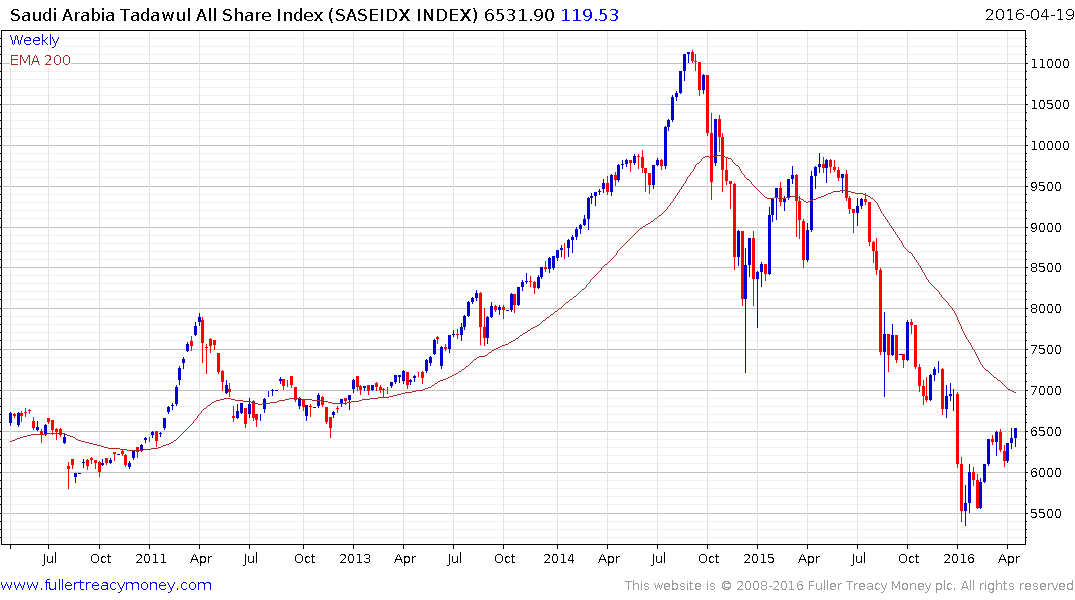Musings From the Oil Patch April 19th 2016
Thanks to a subscriber for this edition of Allen Brooks’ ever interesting report for PPHB. Here is a section:
In light of that view, a critical question is whether a real economic transformation can be performed. An earlier attempt was made in 2000 following the late 1990s oil price downturn and the expensive Saudi-financed war to oust Saddam Hussein’s troops from neighboring Kuwait. The financial pain of that experience was washed away by the rebound in oil prices that ended that transition effort. That experience leads Saudis to expect something to bail them out from having to make hard economic and social decisions.
Critical to this transition effort will be the mindset of the young Saudis who dominate the country’s population. By 2030, the youth group will add 4.5 million new Saudis to the labor force, nearly doubling its current size to 10 million workers. If the female labor force participation rate increases the number could be larger. This population demographic will force the economy to have to create three times the number of jobs for Saudis than it did during the oil boom of 2003-2013, which seems highly unlikely to occur.
There are a number of social impediments to making this transition occur, including Saudi reluctance to take blue-collar jobs that are thought to be menial. Saudi workers enjoy the slow pace and shorter working hours of government jobs. There is also a problem associated with tapping the young females in the country who are constrained by the social stigmas of not being able to drive and not earning enough to employ a car and driver. Here is where modern technology is helping as Uber helps liberate some of these females. More females are taking white-collar jobs in the private sector. Instead of becoming teachers, many are become lawyers and professionals. The challenge is that many of them are willing to trade down to government jobs with shorter hours when they have children. There are also social and employment issues involved with marriage when a woman’s father prefers that a prospective husband have the security of a government job.
Probably the greatest challenge for Saudi Arabia is that both the rulers and the ruled have been satisfied with the social compact that underlies the nation. The populace trades loyalty and obedience to the government in exchange for prosperity, which costs the government substantially. The new social compact will demand greater self-reliance from the people in exchange for their prosperity. Whether the populous understands how precarious their position is in continuing to depend on the government’s continuing largess because of the current and future market for oil.
Here is a link to the full report.
Governance is Everything has been a idiom at this Service for decades and Saudi Arabia has a long way to go before it can be considered that governance is improving regardless of how low the base is.

The stock market halved between September 2014 and the January low. With oil prices finding support, a reversionary rally is underway. A sustained move below 6000 would be required to question potential for additional higher to lateral ranging.


